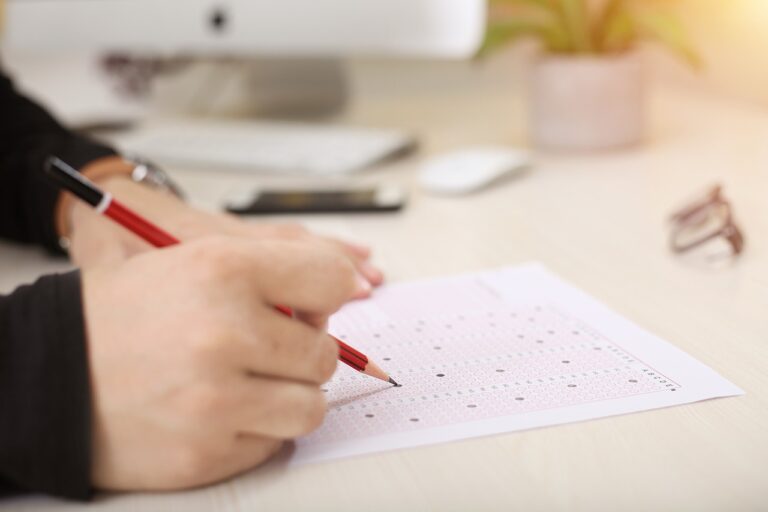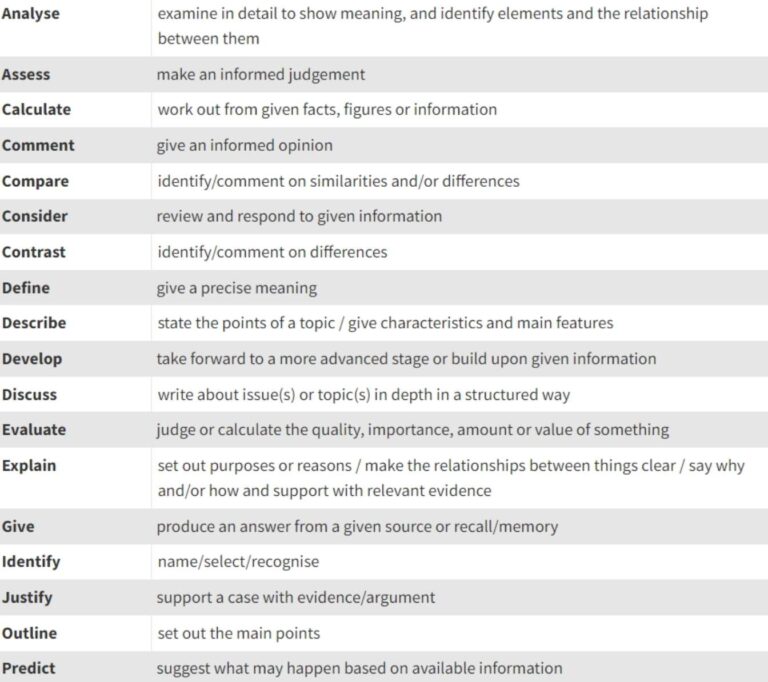Mojza Blog
The CAIE test day
by Zoella Ahmed | 16 Jul 2023

The CAIEs (Cambridge Assessment International Exams) are a very important milestone in a student’s life. However, most of them do not know what to expect on test day, and, as a result, often come ill-prepared. So, if you’re worried about stuff like what to bring, and what not to bring, you’ve come to the right place!
More than a week before the exam
If your exam is not going to take place at your school, or you are a private candidate, it is crucial that you identify the location of your test center as soon as possible, and visit it once or twice, to determine the easiest and quickest route for the exam day. This will also help you avoid the (completely rational) fear of getting lost on the way.
You should open up each of your subjects’ syllabi, and understand what different command words mean. This is especially important because command words tell you how to answer a specific exam question or complete an assessment task. The definitions will help you understand what the words are asking you to do.
Here is a list of common command words:

A Day Before
Get a good night’s sleep. Being well-rested is one of the key factors that will help you perform efficiently in your exam. You will be able to remember important stuff much faster, and moreover, your brain will be sharp and focused. Arriving the next day with huge bags under your eyes and surviving only on caffeine is a big no-no! So, don’t pull an all-nighter, because it just might end up costing you your desired grade.
Pack your bag with all the essentials you’re gonna need. This includes snacks, water, your revision materials, and most importantly, any stationary you might require for the exam. Even though this small task may seem trivial to you, don’t put it off until the next morning.
On The Test Day
Arrive around 60 minutes earlier than the designated time for the exam at your test center. This is necessary because exam centers often have a large crowd of students that need to be verified before being admitted into the exam room. This takes a very long time and may result in you losing precious time for attempting the exam.
Eat something sugary, like chocolate or candy, right before the test, to get a boost of energy. You have to stay energized for filling in those test papers.
After entering the exam room, find your assigned spot and sit quietly until the time for the test starts. If you can’t find it, ask for help from the invigilator.
Attempting the Exam
- Read the exam paper: You will be given your test paper about 5-10 minutes earlier. Utilise this time to read the instructions on the first page. This is one of the most overlooked exam tip of all. Before attempting the exam, read all the questions thoroughly, and formulate a mind map to answer them.
If you have essay-length questions, jot down the points that you want to include so that you don’t forget them later on. This also has a good impression on the examiner as your answer is planned out well. - Divide your time between the questions: Effective time management is crucial if you want to be able to finish on time. This is something that you should practice beforehand.
- Be precise: Read the questions carefully, and note what command words are used to figure out what it is asking of you. Don’t write long and rambling answers; determine the potential keywords or key phrases that the examiner might be looking for. Remember: you don’t need to fill up all those lines. No matter how short it is, you’ll get the marks if it’s correct.
- Do not write outside the designated space: If you need to write more but don’t have any space left, ask the invigilator for an extra sheet and continue there. Don’t forget to clearly mention which question’s answer it is.
- Don’t skip anything: Show all the steps in your working while doing calculations. Even if your answer turns out to be incorrect, you will be awarded marks for it or any formulae you mentioned (i.e. if they were required).
- Come back to it later: If you seem to find a question particularly perplexing, leave it for later. Complete the rest of the questions before coming back to it, instead of wasting all your time on just one.
- Don’t: write in any barcodes, and use any staples, glue, or correction fluid.
What to Bring
- A clear pouch- the invigilators must be able to see what is inside
- Blue or black non-erasable pens (remember: all other pens are not allowed)
- Pencils (for diagrams or graphs)
- Eraser
- Any extra stationary needed for your subject (e.g: for Mathematics Syllabus D 4024, you need to bring a protractor, a pair of compasses, and a ruler, amongst other things)
- Statement Of Entry (SOE)
A Statement Of Entry is a document that confirms your exam registration. It will include a list of your chosen subjects and the exam dates for each of their components, as well as your name, date of birth, and school. If you are a school student, you should receive your Statement of Entry from your school before your exams. If you are a private candidate, you should receive your Statement of Entry through email approximately three weeks before your exams, which you have to print. - Student Identification (This can be your CNIC, ID, or smart card. However, for non-Pakistani nationals, a passport is required.)
- Calculator (if required)
Check which calculators are allowed here.
What Not to Bring
- Any valuables. Exam centers are not guaranteed to have any areas to store your belongings.
- Electronic devices like mobile phones, laptops, and smartwatches which enable connections like Wi-fi and Bluetooth. Even fitness bands aren’t allowed.
- Digital and analogue watches.
All this information is highly important to be taken note of to prepare yourself for the test day. All in all, the most vital thing you need to remember is to not stress yourself out, especially if it’s your first CAIE. It’s just like any other exam!
Body text, add your main text here. While copy pasting either use ctrl + shift + v or add the text directly to the text editor in the elementor sidebar for proper text formatting.
Acknowledgements
Author: Zoella Ahmed
Recent
Mojza
About Mojza
Mojza is a student-led organisation aiming to provide quality resources for Cambridge students.
Other than such weekly blogs, Mojza offers resources for your O levels, IGCSE, and A levels journey. We have notes from reputable teachers, our own original notes and a library of other helpful websites and resources!
Check out our home page!
Published 16 July 2023
Last Updated: 16 July 2023
Written by Zoella Ahmed
